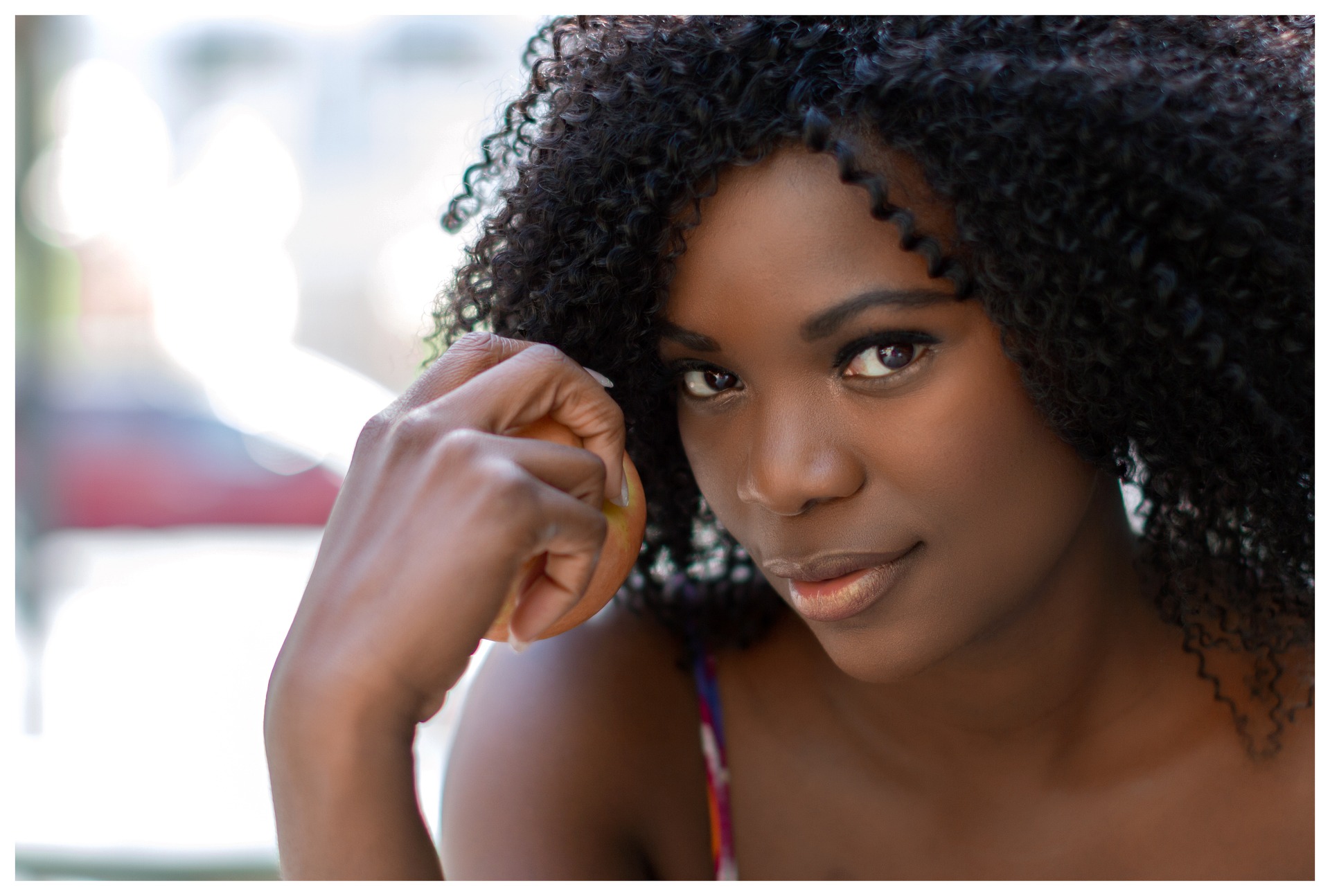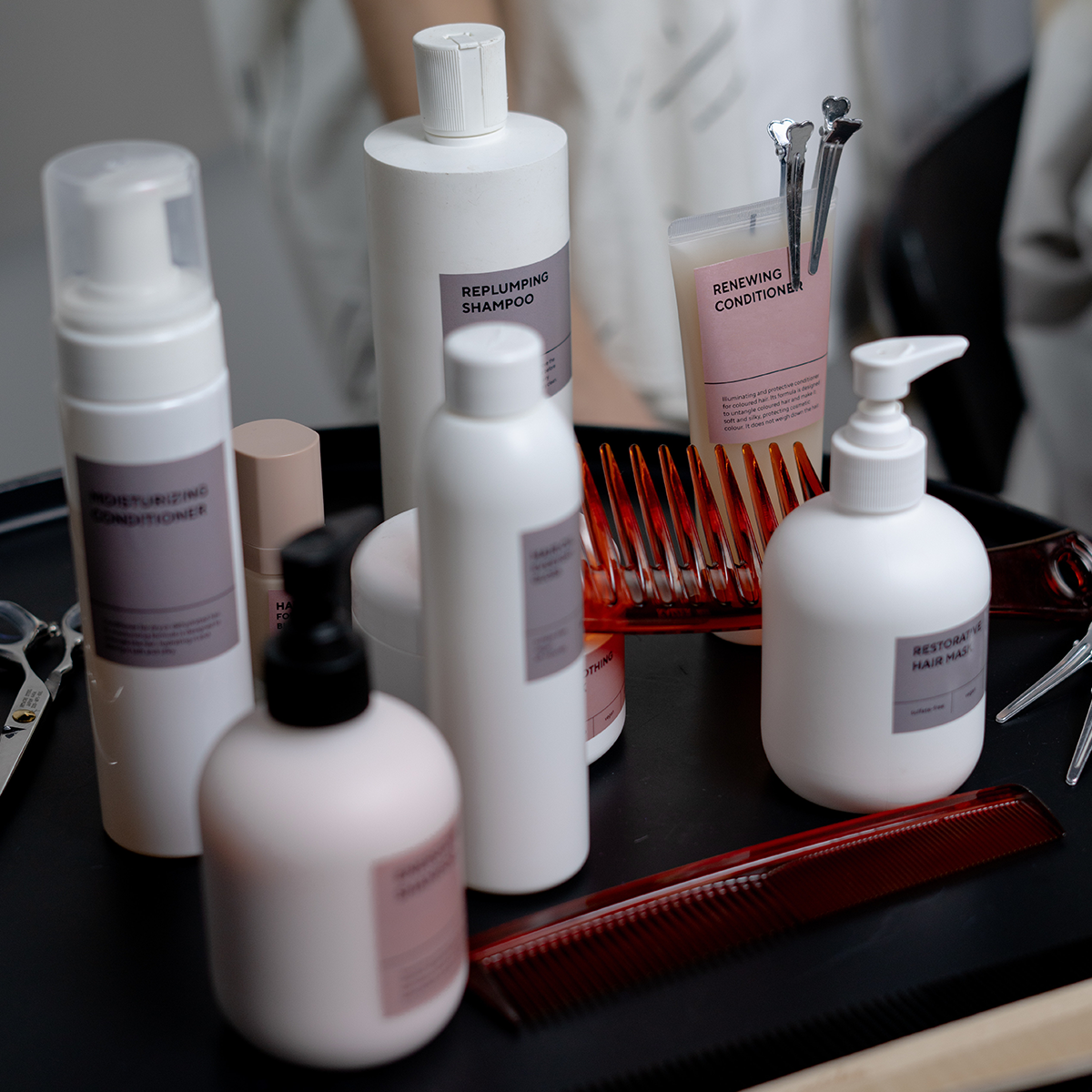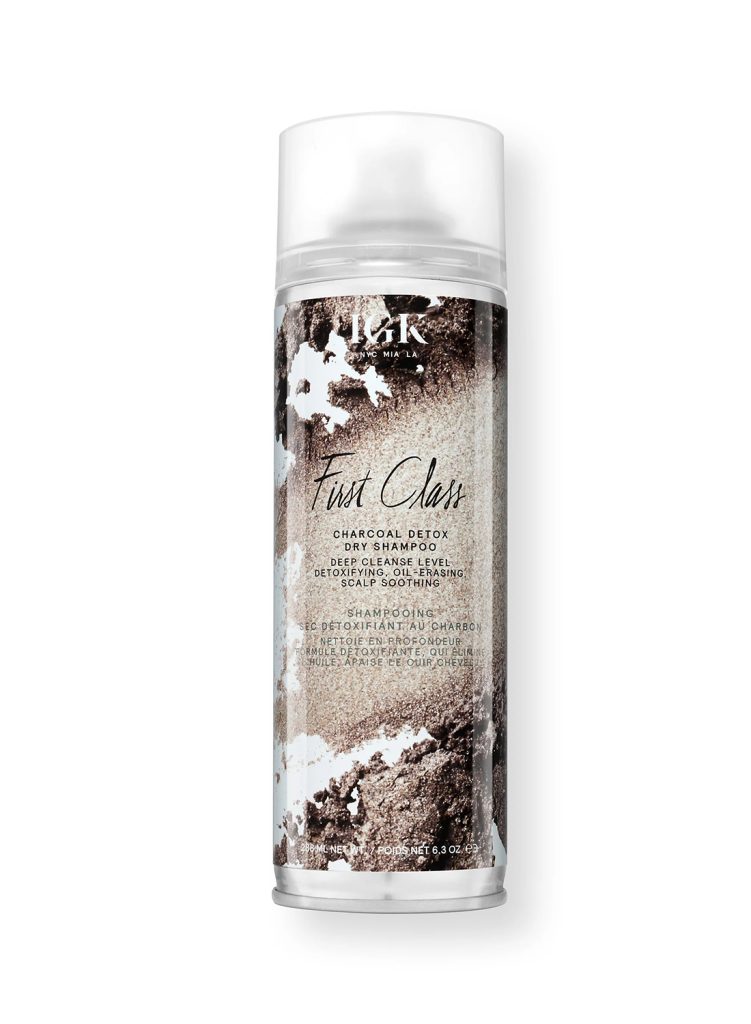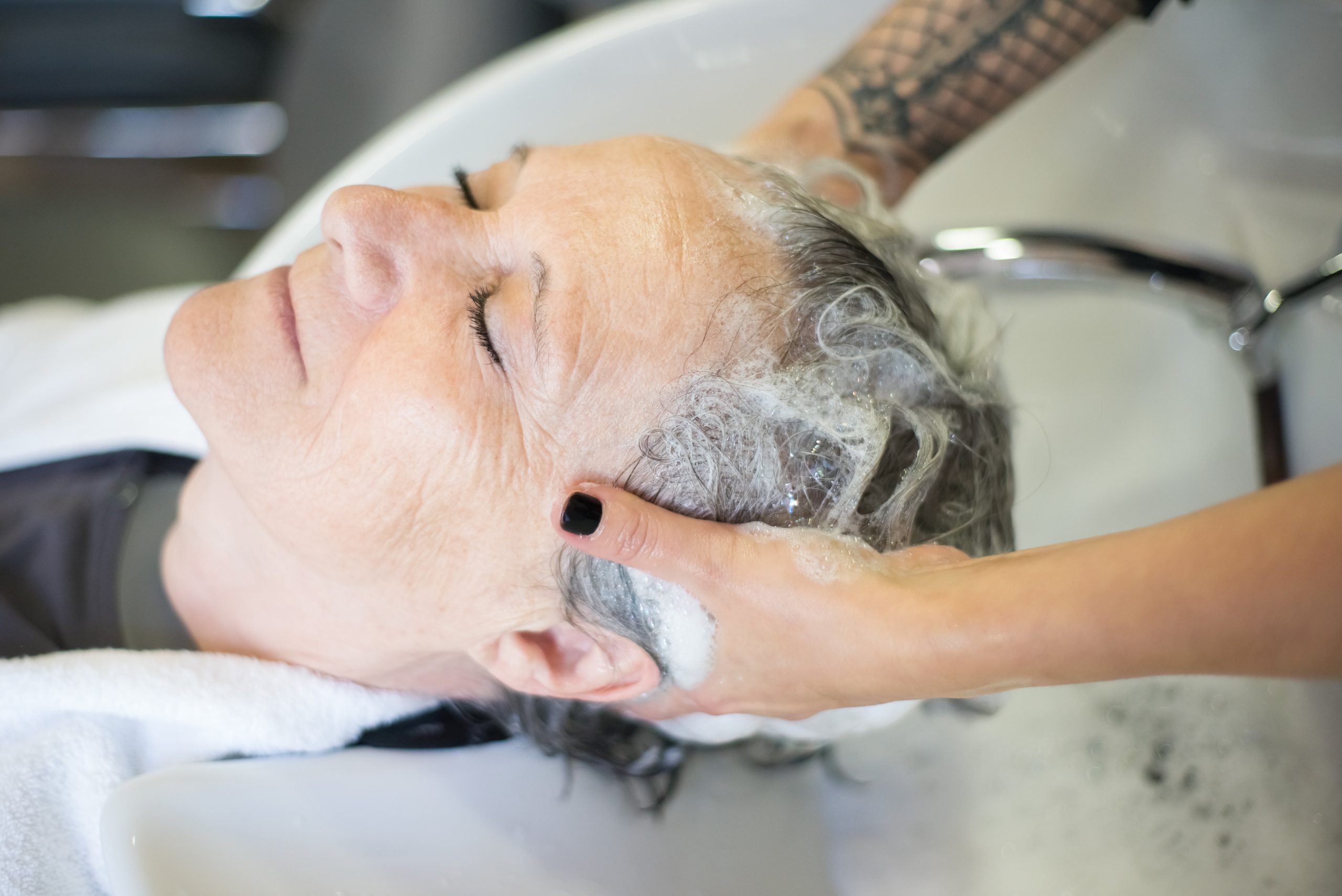Looking for the perfect dry shampoo for African hair? Look no further! Our article reveals the top-rated products that will keep your hair fresh, clean, and full of volume.
Discover the Best Dry Shampoo for African Hair
When it comes to taking care of African hair, finding the right products can be a challenge. This is especially true for dry shampoo, as many options on the market are not designed to meet the unique needs of African hair. In this article, we will explore the importance of choosing the right dry shampoo for African hair and review some of the top options available. We will also provide tips on how to use dry shampoo effectively and offer additional hair care products to consider for maintaining healthy African hair.

Understanding the Unique Needs of African Hair
African hair has its own specific characteristics that require special attention. One of the key factors to consider is the structure of African hair. Unlike other hair types, African hair is naturally curly and tends to be more fragile. It also has a higher density, which means it requires extra moisture and protection.
When it comes to understanding African hair, it is essential to delve deeper into the structure of the hair strands. African hair is made up of tightly coiled strands that have a flat and elliptical shape. This unique structure not only gives African hair its distinct appearance but also poses certain challenges in terms of maintenance and care.
The tightly coiled nature of African hair makes it prone to dryness, breakage, and damage from external factors such as heat and styling tools. Due to the tight coils, natural oils produced by the scalp have a harder time spreading throughout the hair shaft, leading to dryness. This lack of natural moisture can result in a dull and brittle appearance.
Furthermore, the cuticles of African hair are raised, making it more susceptible to frizz and environmental damage. The raised cuticles create gaps along the hair shaft, allowing moisture to escape easily. This can be exacerbated by factors such as humidity, wind, and exposure to harsh chemicals. Therefore, it is crucial to choose hair care products that can address these specific concerns and provide the necessary moisture and protection.
Common Challenges and Solutions for African Hair Care
When it comes to caring for African hair, common challenges include dryness, breakage, and scalp issues. Dryness can be caused by a variety of factors, such as harsh weather conditions, overwashing, or using products that strip the hair of its natural oils. The lack of moisture in African hair can lead to a range of issues, including frizz, brittleness, and a lackluster appearance.
Breakage is often a result of the hair’s fragile nature and regular manipulation, including styling and chemical treatments. The tight coils of African hair make it more susceptible to breakage when subjected to excessive tension or rough handling. It is important to handle African hair with care and use protective styling techniques to minimize breakage.
In addition to dryness and breakage, scalp issues can also arise in African hair care. These issues may include dandruff, itchiness, or an overly dry or oily scalp. Dryness can lead to a flaky scalp, while excessive oil production can result in a greasy and uncomfortable sensation. Proper scalp care, including regular cleansing and moisturizing, is essential to maintain a healthy scalp and promote optimal hair growth.
To overcome these challenges, it is important to choose hair care products that provide moisture, protection, and nourishment. Dry shampoo plays a crucial role in maintaining and refreshing African hair between washes. It helps to absorb excess oil, eliminate odor, and provide a quick refresh without the need for water. However, it is important to choose a dry shampoo specifically formulated for African hair to ensure it addresses the unique needs and concerns of this hair type.
When selecting hair care products, it is also beneficial to look for ingredients that promote moisture retention, such as shea butter, coconut oil, and argan oil. These ingredients can help to hydrate and nourish the hair, reducing dryness and improving overall hair health.
In conclusion, understanding the unique needs of African hair is essential for effective hair care. By considering the structure of African hair, addressing common challenges, and choosing appropriate products, individuals can ensure their hair remains healthy, moisturized, and protected.
The Importance of Choosing the Right Dry Shampoo
A quality dry shampoo can make a world of difference for African hair. Not only does it help absorb excess oil and refresh the hair, but it can also provide moisture and nourishment to the scalp and strands. Unlike regular shampoos, dry shampoo does not require water and can be used on dry hair.

The Role of Dry Shampoo in Hair Care
Dry shampoo serves as a quick and convenient option for refreshing African hair between washes. It helps to absorb excess oil and sweat, leaving the hair looking and feeling clean. Additionally, dry shampoo can add volume and texture, making styling easier.
But what exactly makes dry shampoo so effective? The secret lies in its formulation. Dry shampoos typically contain ingredients such as rice starch or cornstarch, which work to absorb oil and dirt from the hair and scalp. These powdery substances act like tiny sponges, soaking up the unwanted oil and leaving the hair looking fresh and revitalized.
Furthermore, dry shampoos often contain additional ingredients that provide nourishment and moisture to the hair. Ingredients like argan oil, coconut oil, or shea butter can help hydrate and soften the hair, preventing dryness and brittleness. This is especially beneficial for African hair, which tends to be more prone to dryness and breakage.
Why Regular Shampoos May Not Be Enough
Regular shampoos may not be ideal for African hair as they can be too harsh and strip the hair of its natural oils, leading to dryness and breakage. Dry shampoos, on the other hand, offer a gentler alternative that can help maintain the hair’s moisture balance while providing the cleansing benefits.
It’s important to note that dry shampoo should not completely replace regular shampooing and cleansing. While dry shampoo can be a great tool for refreshing the hair in between washes, it is still essential to properly cleanse the hair and scalp with a regular shampoo to remove any buildup, product residue, and impurities.
When choosing a dry shampoo for African hair, it is important to look for products specifically formulated for textured or curly hair. These dry shampoos often contain moisturizing ingredients and are free from harsh chemicals that can further dry out the hair.
Additionally, it’s worth considering the scent of the dry shampoo. Some dry shampoos have a strong fragrance that can be overpowering or clash with other hair products or perfumes. Opting for a dry shampoo with a subtle or natural scent can be a better choice, ensuring that it doesn’t interfere with your personal fragrance preferences.
In conclusion, choosing the right dry shampoo for African hair is crucial for maintaining its health and appearance. By selecting a dry shampoo that is specifically formulated for textured or curly hair, you can ensure that your hair remains nourished, moisturized, and refreshed. So, next time you reach for a dry shampoo, take a moment to consider its ingredients and suitability for your hair type, and enjoy the benefits of a well-chosen product.
Top Dry Shampoos for African Hair
Now that we understand the importance of choosing the right dry shampoo for African hair, let’s explore some of the top options available.
Review of High-End Dry Shampoos
IGK Hair – First Class Dry Shampoo Review

IGK Hair’s First Class Dry Shampoo deeply cleanses with its unique charcoal powder formula, effectively absorbing oil, sweat, and odors. It’s free from sulfates, parabens, benzene, and mineral oils, ensuring a safe application for all hair types.
With just a small amount, hair feels refreshed for longer periods, while also gaining volume. The product is travel-friendly with a delightful scent, and ethically, IGK commits to a cruelty-free stance.
Amika – Perk Up Talc-Free Dry Shampoo Review

Amika’s Perk Up Talc-Free dry Shampoo is the closest thing to washing your hair without water – a talc-free, true dry cleanser that absorbs oil and refreshes hair with natural rice starch. Leaves no white residue, ever.
Absorbs excess oil, buildup and odor without talc or aluminum, adds volume and cools scalp.
The product boasts strong reviews from users and has a heavenly scent that will leave you turning heads.
Klorane – Dry Shampoo With Oat Milk Review

Klorane’s dry shampoo with oat milk leaves hair looking refreshed, full of body and volume while extending the life of blowouts. The ultra-fine powders blend invisibly into hair with no chalky residue.
Ultra-gentle, plant-based dry shampoo eliminates oil, dirt and odors. Hair is clean with added volume and texture.
According to the creator, this dry shampoo is the most awarded dry shampoo ever receiving awards from Allure, InStyle, and more.
Review of Budget-Friendly Dry Shampoos
1. IGKHair – This budget-friendly option is great for African hair. It effectively absorbs oil and refreshes the hair without leaving any residue.
2. Amika – Formulated with natural ingredients, this dry shampoo is gentle on the hair and scalp while providing the cleansing benefits needed.
3. Klorane – This affordable dry shampoo works wonders in refreshing and reviving African hair, leaving it looking and feeling clean.
How to Use Dry Shampoo Effectively
Using dry shampoo properly is crucial to achieve the desired results. Here is a step-by-step guide to help you make the most of your dry shampoo:

Step-by-Step Guide to Applying Dry Shampoo
- Start by sectioning your hair to ensure even application.
- Spray the dry shampoo onto your roots, holding the bottle about 6 inches away from your scalp.
- Massage the dry shampoo into your roots using your fingertips or a brush to distribute the product.
- Leave the dry shampoo on for a few minutes to allow it to absorb excess oil.
- Brush or comb through your hair to remove any residue and style as desired.
Tips for Maximizing the Benefits of Dry Shampoo
- Use dry shampoo on dry hair, as it is designed to absorb oil and refresh the hair between washes.
- Avoid using too much dry shampoo, as this can leave a residue and weigh down the hair.
- Focus on spraying the dry shampoo on the roots where oil tends to accumulate the most.
- Comb or brush through your hair after applying dry shampoo to distribute the product evenly.
- Use dry shampoo as a styling product by spraying it on clean hair to add texture and volume.
Maintaining Healthy African Hair
In addition to using dry shampoo, there are other hair care products and lifestyle changes that can contribute to maintaining healthy African hair.
Additional Hair Care Products to Consider
1. Moisturizing Conditioner – Choose a conditioner specifically formulated for African hair to provide extra moisture and nourishment.
2. Leave-In Conditioner – Applying a leave-in conditioner after washing your hair can help keep it moisturized throughout the day.
3. Hair Oil – Incorporating a hair oil into your routine can provide additional moisture and help seal in moisture.
Lifestyle Changes for Better Hair Health
1. Limit Heat Styling – Excessive use of heat styling tools can lead to dryness and damage. Opt for heat-free styles or use heat protectant products.
2. Protect Your Hair at Night – Sleeping on a silk or satin pillowcase and wearing a satin scarf or bonnet can help reduce friction and prevent breakage.
3. Eat a Balanced Diet – Nutrition plays a crucial role in hair health. Make sure to include foods rich in vitamins, minerals, and proteins to promote healthy hair growth.
In conclusion, discovering the best dry shampoo for African hair is essential for maintaining its health and appearance. Understanding the unique needs of African hair and choosing products designed specifically for textured hair is key. With the right dry shampoo and proper usage, you can effectively refresh your hair while keeping it moisturized. Remember to complement your dry shampoo routine with other hair care products and adopt lifestyle changes that promote overall hair health. By taking these steps, you’ll be on your way to healthier, more manageable African hair.





